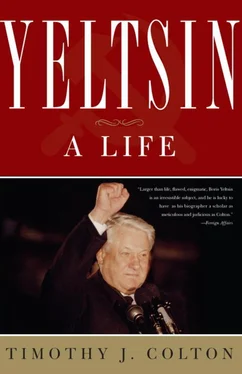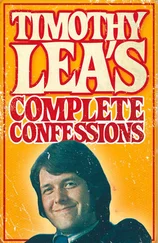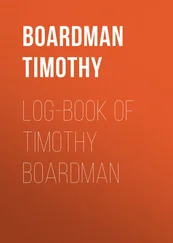The biography of this singular person provides an interpretive prism for the decline and fall of Soviet communism, the grandest of the past century’s failed social experiments, and for the harrowing genesis of post-communism. 23Yeltsin leaves nobody indifferent. He needs to be understood if we are to understand the age we inhabit and how we got here.
When Yeltsin made his debut in high Soviet politics in 1985, many onlookers, in the West in particular, misconstrued him as a bumpkin, or at best as a cat’s paw in a game controlled by others more gifted than he. When he parted ways with Gorbachev in 1987, they were overhasty to write his political obituary. 24There were those who saw him as a flash in the pan in his recusant phase and who thought he was fading out as Gorbachev and the USSR were sidelined in 1991. 25When these prognoses were refuted, the tenor changed to flattery, and Yeltsin as president was valorized as a veritable archangel of reform. At first at home and then abroad, this vision segued into one of haplessness and aloofness. His growing unpopularity, a deadly altercation with parliament in 1993, and health issues in 1995 prompted predictions of an imminent cessation of Yeltsin’s reign. Most cognoscenti foresaw an ignominious defeat in the 1996 presidential election, were he to hazard it—but he ran for re-election, won a dazzling victory, and was saluted as a political maestro. After 1996 the pendulum swung yet again. With political and economic crises peaking in 1998–99 and the hourglass running out on his second term, he was pilloried as a national embarrassment and his Russia as “a disastrous failure… threatening other countries with multiple contagions.” 26
On the personal and moral level, there were those who maintained early on that Yeltsin did not hold a candle to his great rival, Gorbachev. President George H. W. Bush, underwhelmed when he first met Yeltsin in 1989, was incensed by Yeltsin’s demand in February 1991 that Gorbachev leave office. “This guy Yeltsin,” he muttered to staffers, “is really a wild man, isn’t he?” 27Bush came around on Yeltsin, but in the middle and late 1990s two other character leitmotifs gained currency. One brought to the forefront Yeltsin’s frailties and foibles and depicted him as someone “at the mercy of the pettiest passions,” 28notably his fondness for strong drink. The other latched onto what Russian wordsmiths titled “the Family” (with a capital “F”): supposedly a camarilla of advisers, officials, and big-business oligarchs associated with his daughter Tatyana Dyachenko and the plutocrat Boris Berezovskii, and, it was said, the force behind the throne in the twilight years of the Yeltsin presidency.
While these pictures are all overblown, some fudge the truth worse than others. For example, although he overindulged in alcohol, the habit must be seen in perspective and most of the time was not central to his public activities. And although the nexus between wealth and power in the Yeltsin period has to be of concern, he was no marionette of the oligarchs, whom he invented sociologically, and the idea of the late Yeltsin fronting for a palace-cum-business consortium has little relation to reality.
In the 1980s and 1990s, acting in spurts and out of intuition more than a panoramic master plan, Yeltsin made fateful decisions that put his society on a much more promising road than it had been on since 1917. He did so under arduous circumstances and avoided the apocalyptic scenarios—anarchy, nuclear blackmail, famine and industrial collapse, ethnic strife—that had haunted forecasts about the demise of one-party rule. For what he wrought, and for pulling it off in the main by ballots rather than bullets, he belongs with the instigators of the global trend away from authoritarianism and statism and toward democratic politics and market-based economics. As a democratizer, he is in the company of Nelson Mandela, Lech Wałesa, Mikhail Gorbachev, and Václav Havel. It is his due even when allowance is made for his blind spots and mistakes. As against those who would shrug him off as an oddball or an antihero, or who cannot get beyond his welter of contradictions to come to a summary judgment, my net assessment of Yeltsin is as a hero in history—enigmatic and flawed, to be sure, yet worthy of our respect and sympathy. 29
I initially intended to restrict myself to a portrait of Yeltsin’s leadership of Russia as its elected president and to treat everything before that as preface. The further I got, however, the more I asked myself what those tumultuous years had to do with precedent, what molded the man and his instincts, and how the new Yeltsin, if that is what he was, ever emerged from the chrysalis of the old. It is anything but self-evident how the virtuoso product and agent of a dictatorship could end up as its hangman.
A 1995 skit in Kukly (Puppets), the political satire on Russian television, lampooned Yeltsin’s shifting loyalties. “Boriska,” the Yeltsin doll, plays Faust, situated in a medieval scholar’s laboratory thick with books and test tubes. Tongue in cheek, he intones:
Once I was a communist
Faithful to the marrow of my bones:
From all three deities [Marx, Engels, and Lenin] I drank
And ate of the constituent parts.
I kept watch at the [party] congresses,
But really I was a democrat in spirit,
I was brother to the wind and sun
And godmother to the people of Sverdlovsk.
Lo and behold, when the clock struck and the moment came—
I was president of Russia! 30
In real life, the tale was not nearly so simple—not with Yeltsin’s abilities, not with his relationship to the ancien régime, not with his scorpions-in-a-bottle fight with Gorbachev or his conquest of power, and assuredly not with his use of power to make a new beginning.
My overarching aim in this “history made personal” 31is to submit Boris Yeltsin and his career to a textured scrutiny that does justice to their many-sided humanity. Years of fieldwork that afforded eye-opening interviews with Yeltsin, with family members, and with about 150 other principals, declassified files from the Soviet archives, and new memoirs shed fresh light on the extended drama of his life. It is necessary to explain why the lunge toward a better tomorrow did not cross the chasm with finality, as by his admission it did not. Indivisible from that, we must see why it was mounted, why by Boris Yeltsin, and why it took him and the former Soviet Union as far as it did.
CHAPTER ONE
Self-Reliance
The Urals, among the most ancient mountain ranges in the world, are the physiographic frontier between Europe and Asia. They rise 1,500 miles from the grasslands above the inland Caspian Sea, in present-day Kazakhstan, to the icebound coastal plain of the Arctic Ocean. Their creases push gelid northern air, and with it northern flora and fauna, southward. They are highest in the upper segment; in the lower segment, the Urals comprise parallel folds of hills and stony crests. The middle segment, which by convention runs from 55° 30’ to 61° north, consists largely of low plateaus trenched by ravines. Here are located most of the mountain belt’s deposits of ferrous and nonferrous metals, salt, gemstones, and bauxite. It was this subterranean bounty that, beginning in the 1550s, drew Russians in from the west and north. Metallurgy dominated the Urals economy by the eighteenth century—three-quarters of the Russian Empire’s iron and almost 100 percent of its copper were smelted there at century’s end—but regressed in the nineteenth under competition from the mills of the Donbass and Dnieper Valley, in southern Ukraine, where coal rather than wood was used for heat. Agrarian migrants also flocked to the mid-Urals’ lowlands, most of which bear a load of rich humus that responds well to the plow.
Читать дальше












